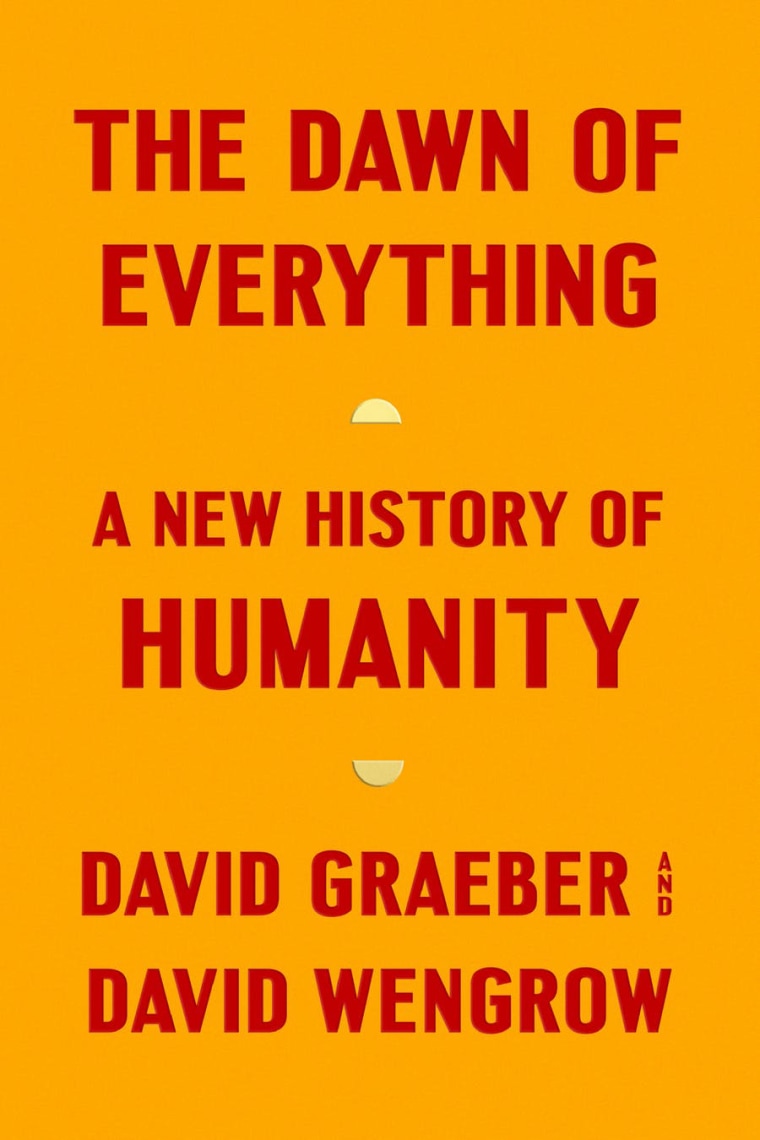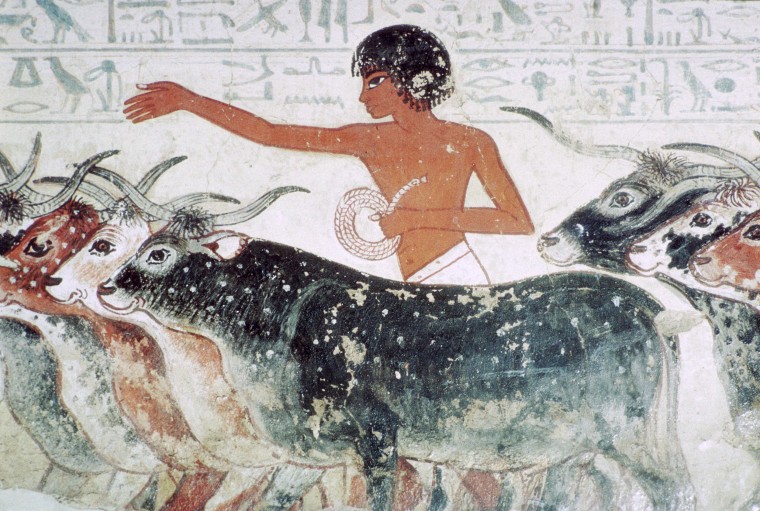“Those who cannot remember the past are condemned to repeat it,” the philosopher George Santayana said in the early 20th century. Anthropologist David Graeber and archaeologist David Wengrow make a more novel but persuasive claim in their book, “The Dawn of Everything: A New History of Humanity,” out Tuesday. By forgetting much of human history, they argue, we have doomed ourselves to repeat not the past but the present. When we erase what’s come before, we also lose our ability to imagine what’s to come. We need to remember different possibilities if we want to create a better future.
The authors suggest Native ideas helped trigger the Enlightenment in politically backward Europe, teaching French philosophers like Rousseau and Voltaire that their own societies could be less cruel.
Like Steven Pinker’s “The Better Angels of Our Nature: Why Violence Has Declined” or Jared Diamond’s “Gun, Germs, and Steel: The Fates of Human Societies,” Graeber and Wengrow look at archeological and anthropological evidence to make a sweeping case about the nature of humanity and historical development. Their 705-page book touches on everything from consensus decision-making in Buddhist monasteries 2,000 years ago in South Asia to the negative assessments of the culture of European settlers in the pre-Enlightenment era made by the Native American Wendat confederacy of Lake Ontario.
The breadth can be overwhelming, but the thesis never gets lost in the details — in large part because the thesis is the details. The point of the book is to show just how varied and unsummarizable human development has been.
The idea that humans have lived lots of different ways seems like it should be obvious. But it’s a surprisingly controversial argument. Pinker, Diamond and other anthropological synthesizers, much like the philosophers Jean-Jacques Rousseau, Thomas Hobbes and Karl Marx, have tried to put all of human history into a clear, simple and inevitable timeline.

According to Hobbes, the first humans were hunter-gatherers who lived lives of violent anarchy and poverty until the development of agriculture and state authority enabled peace and civilization. Or alternatively, according to Rousseau, hunter-gatherers lived in a happy state of peace and prosperity until agriculture led to big government and a reduction in freedom and happiness.
Either way, human government started simple and became complex everywhere. Progress, whether good or evil, is, in these accounts, inevitable and unidirectional. Graeber and Wengrow, though, resist these unified narratives. Instead, their big thesis is that there is no thesis that encapsulates all of human history. They point to recent scientific evidence that early humans were far more genetically and biologically different from one another than human populations are today. “The only thing we can reasonably infer about social organization among our earliest ancestors is that it’s likely to have been extraordinarily diverse,” they argue.
In other words, human societies — even prehistoric human societies — vary a lot. For instance, Graeber and Wengrow provide a lot of evidence that the development of agriculture was not an automatic first step on the way to large urban centers and smartphones.
In the Fertile Crescent in the Middle East, generally regarded as the birthplace of agriculture, Graeber and Wengrow argue that it took some 3,000 years to transition from life based on foraging to life based on food production. For the bulk of that time — a period longer than Christianity has existed — people experimented with a mix of food gathering and food cultivation. Farming did not suddenly result in massive social stratification or even in massive social change.
Moreover, prehistoric humans were not just drones shaped by their food production techniques. They had choices about how they wanted to live. And they were often more adventurous in those choices than we are today. Wengrow and Graeber assert, for example, that native peoples in North America were aware of a wide range of possible governments before the Europeans arrived and self-consciously chose more egalitarian societies.
If people in the past could choose more egalitarian social structures, why shouldn’t we be able to do that as well?
They point to the Cahokia Mississippi River Valley civilization that flourished from 1050 A.D. to 1350 A.D. Cahokia seems to have been a centrally organized agricultural civilization with a lot of social stratification. It grew to 15,000 or so people, and then disintegrated. The area was largely abandoned for centuries. The authors speculate this may have been because Cahokia was “overwhelmingly and resoundingly rejected by the vast majority of its people.” Cahokia’s descendents formed smaller-scale communities.
Native peoples in the Mississippi Valley weren’t less hierarchical than Europeans because they were ignorant of other options, the authors argue. They suggest instead that they were less hierarchical because they were more knowledgeable. There’s good reason to think they were aware of more top-down societies but preferred other options — as did many Europeans who encountered Indigenous people.
Graeber and Wengrow reject Marx’s teleological history as much as they reject Hobbes’. Still, their conclusions are explicitly progressive. They argue, based on numerous contemporary European accounts, that cosmopolitan Native American political philosophers like Kandiaronk were skilled in political debate and valued freedom in a way that baffled hierarchical Europeans.
The authors suggest Native ideas helped trigger the Enlightenment in politically backward Europe, teaching French philosophers like Rousseau and Voltaire that their own societies could be less cruel and more equal. Similarly, Graeber and Wengrow hope to show that human imagination and possibility is broader and more hopeful than we let ourselves believe.
“The Dawn of Everything” doesn’t pretend that prehistory is bloodless: Torture, warfare, cruelty and despotism were a common feature of many societies, as they are of ours. But there were also societies organized through complex, nonhierarchical systems of mutual aid, such as Basque communities where communal obligations to neighbors rotated throughout the year. There were societies like the Wendat, in which, to the scandal of Jesuit observers, even murderers were not punished with execution or imprisonment.
If the Wendat can manage without police, then so can we. And if people in the past could choose more egalitarian social structures, why shouldn’t we be able to do that as well? The fact that there was no one beginning of humanity means there is no one endpoint. The dawn of everything is always now.


